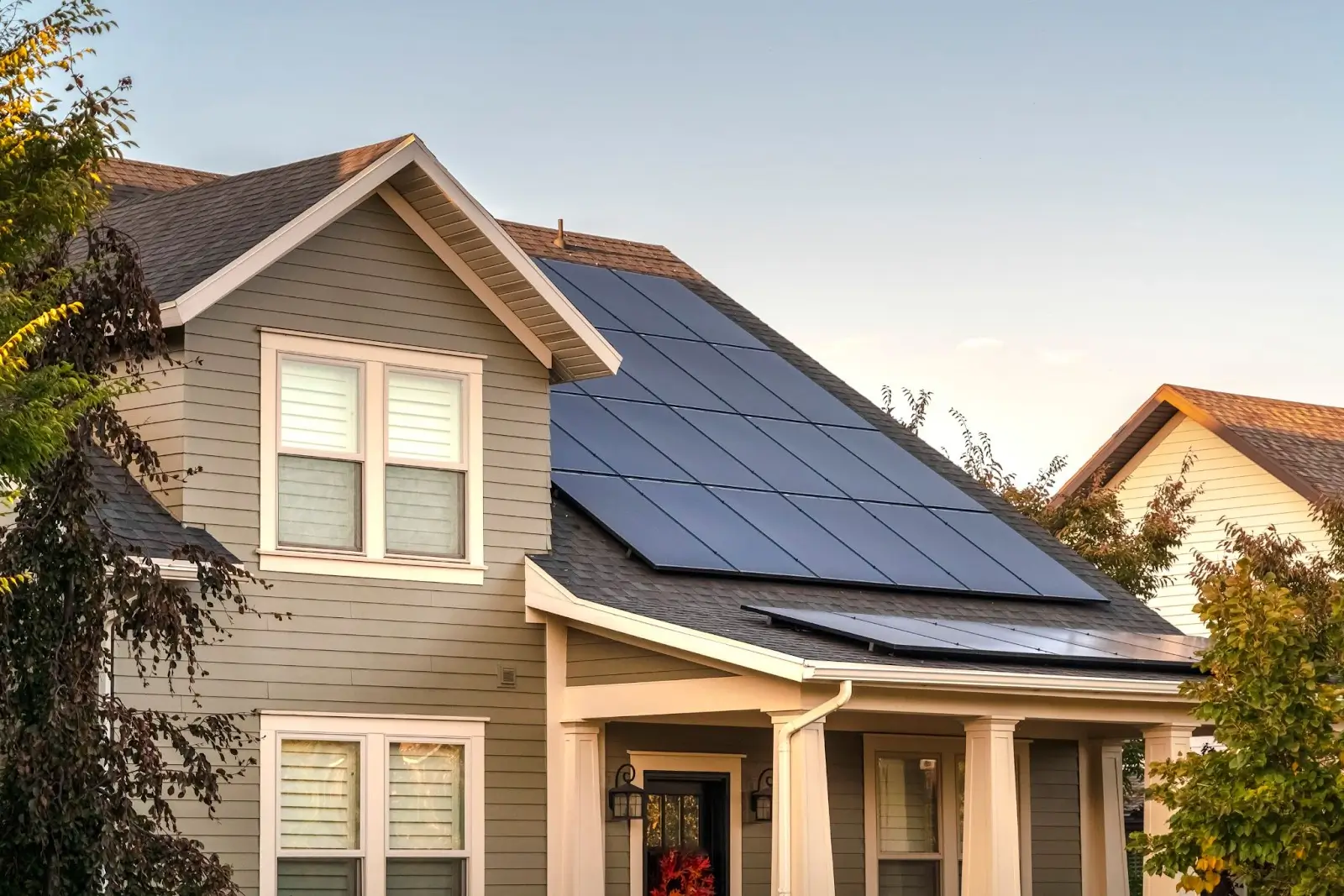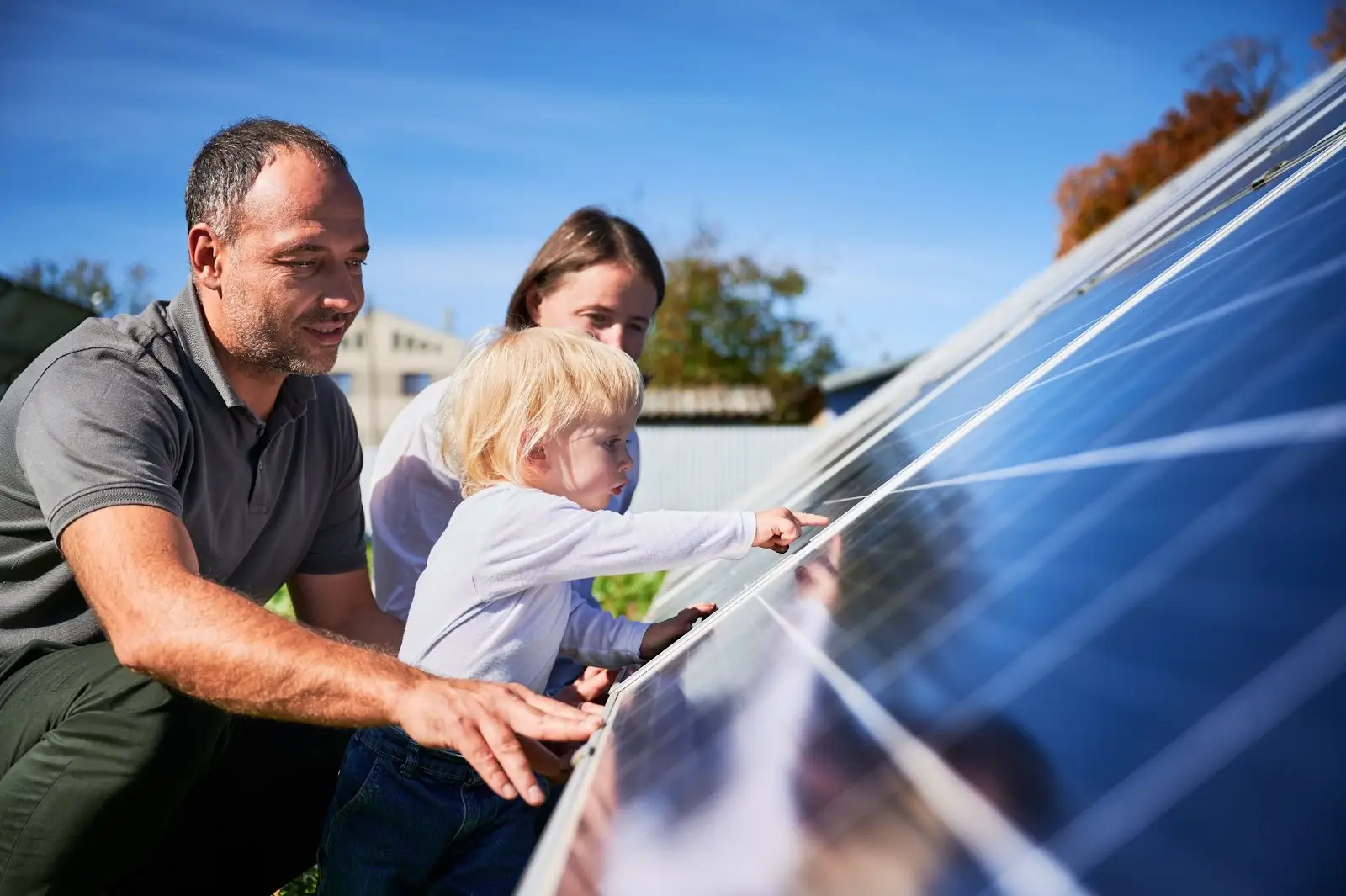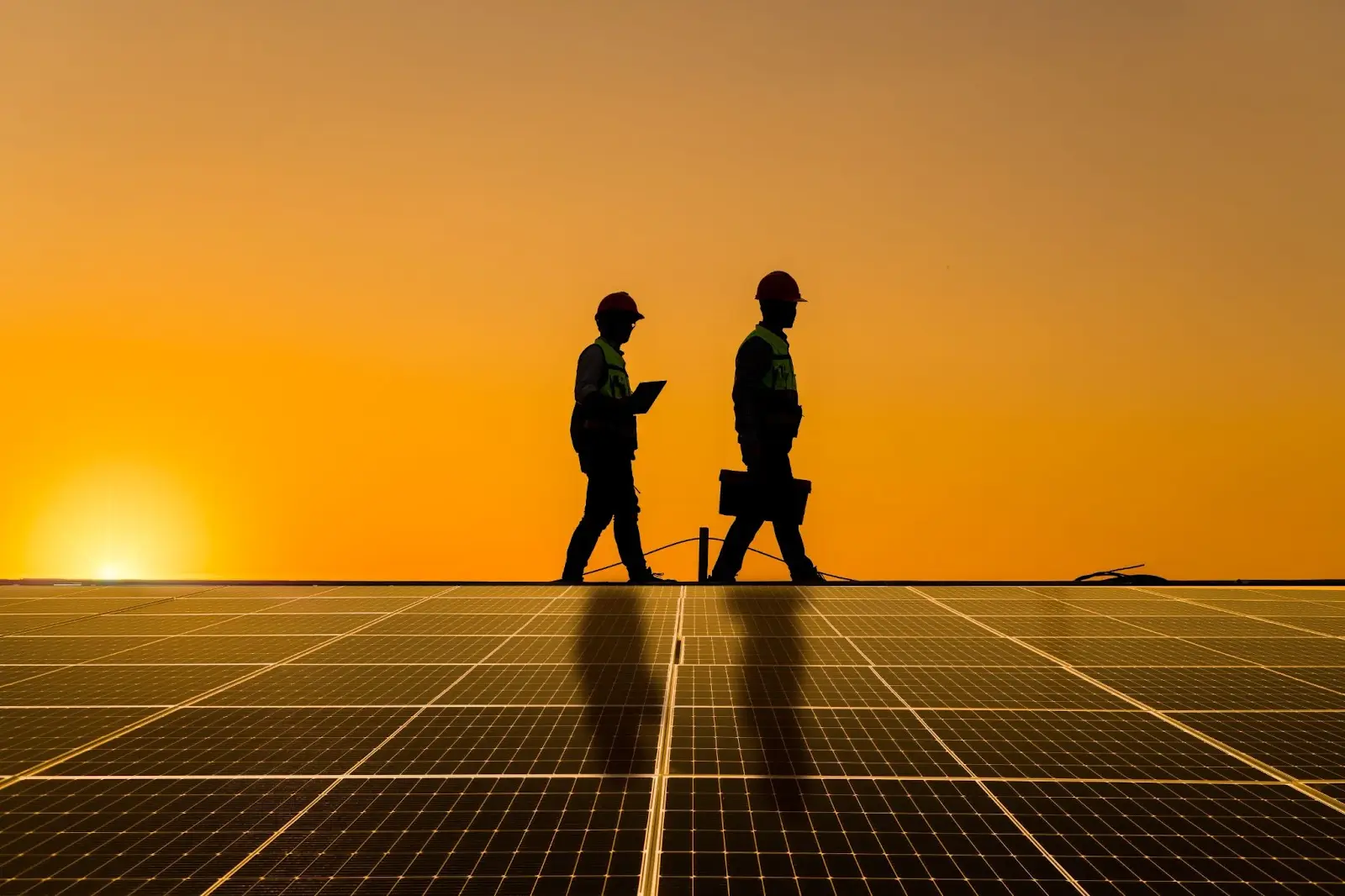Ever wondered if staring at the sun could actually pay off? Well, with solar panels, it can! In an age of rising energy costs and increasing environmental awareness, many homeowners are asking, “Are solar panels right for my home?” Solar energy promises to reduce your electricity bills and your carbon footprint, but is it the right choice for you? Before you get on the roof and start basking in its rays, it’s important to understand if solar panels are right for your home. Let’s explore the ins and outs of home solar panels to help you make an informed decision.
What Is Solar Power & How Do Solar Panels Work?
Solar power harnesses energy from the sun using solar panels. These panels are composed of photovoltaic cells that convert sunlight into direct current (DC) electricity. An inverter then changes this DC into alternating current (AC) electricity, which powers your home. This process not only provides a renewable source of energy but also helps in reducing electricity costs over time.
Can Solar Panels Really Save You Money?
One of the primary questions homeowners ask is, “Can solar panels save you money?” The answer is often yes. By generating your own electricity, you reduce your reliance on the grid, which lowers your energy bills.
The exact amount of savings depends on your energy consumption, the size of the solar panel system you install, and your local electricity rates. However, in most cases, solar panels pay for themselves over time through the energy savings they generate. So, while the initial investment might seem high, you’re essentially investing in long-term energy independence and potentially significant cost reductions on your electricity bills. Additionally, many states offer incentives and rebates that can further decrease the initial investment and improve your long-term savings.
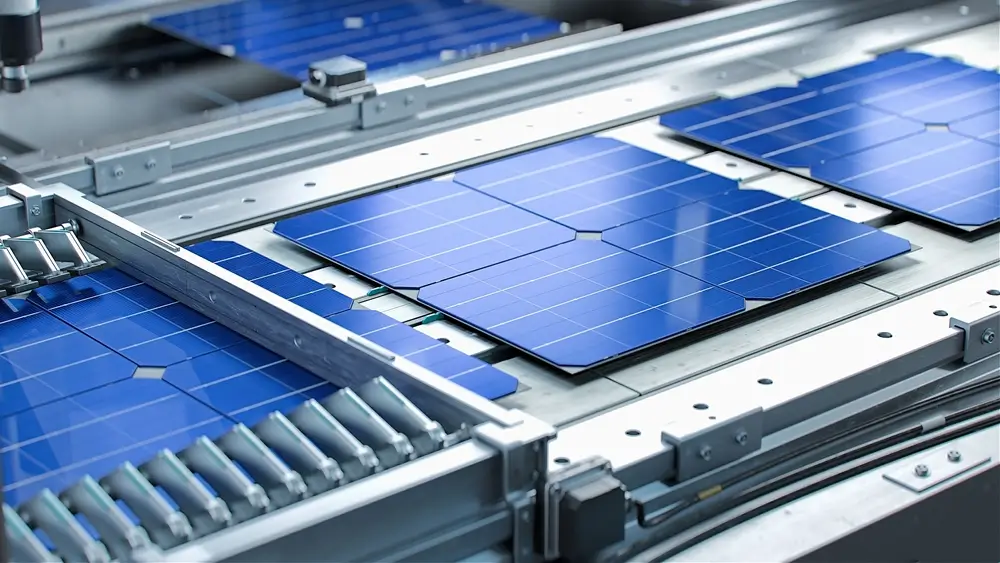
What Are the Components of a Residential Solar Panel System?
A residential solar panel system might seem complex at first glance, but it’s actually made up of several key components that work together seamlessly to convert sunlight into usable electricity for your home. Here’s a breakdown of each essential element:
Solar Panel Modules
These are the familiar panels you see mounted on rooftops. These panels capture sunlight and convert it into electricity. They are typically installed on your roof in a location that receives maximum sunlight.
Inverter
Think of the inverter as the translator of your solar system. It receives the DC electricity generated by the solar panels, which isn’t directly usable by your home appliances. The inverter converts the DC electricity produced by the solar panels into AC electricity, which is then used by most home appliances.
Battery
While not every system requires a battery, it can be a valuable addition for homeowners who want greater control and energy independence. A solar battery stores excess energy generated during the day for use at night or during power outages, ensuring you have a continuous power supply.
Mounting Equipment
The mounting equipment makes sure your solar panels securely fasten to your roof, ensuring they can withstand harsh weather conditions like strong winds, hail, and even snow in some regions. These mounts are typically made of heavy-duty aluminum and are designed to tilt the panels at an optimal angle to maximize sunlight exposure throughout the year.
Soft Costs
There are additional expenses beyond the physical components of a solar system. These are often referred to as “soft costs” and can include permitting fees, system design and engineering costs, interconnection fees with your utility company to connect your system to the grid, and possibly inspections. It’s important to factor these soft costs into your overall budget when considering a solar panel system.
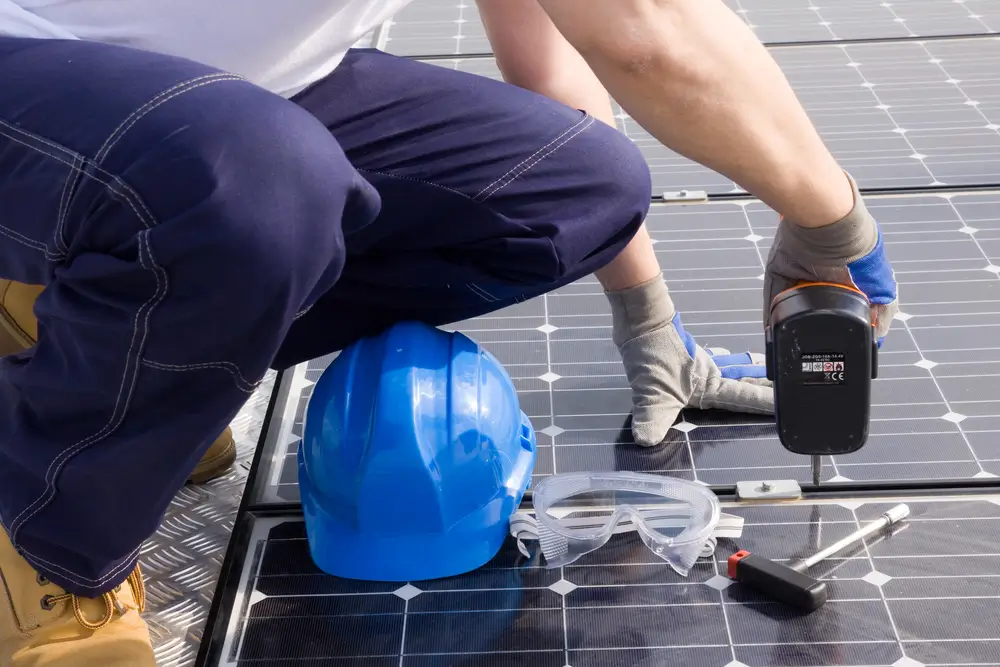
Home Solar Panel Installation Process
So you’ve decided to harness the power of the sun! Understanding the home solar panels installation process can help you prepare for what’s involved:
Consultation
The process begins with a consultation where a solar provider assesses your energy needs and evaluates if your home is suitable for solar panels.
Home Visit
A technician will visit your home to conduct a detailed site assessment, measuring your roof and checking its condition to ensure it can support solar panels.
Final System Proposal
Based on the site assessment, the solar provider will create a final proposal, including the system design, costs, and projected savings.
Permitting
The provider will handle the necessary permits and approvals from local authorities, which is a crucial step before installation can begin.
Solar Panel Installation
Once permits are secured, a team of installers will set up the solar panels, inverters, and other equipment, typically completing the job in one to three days.
Request Permission To Operate
After installation, the system must be inspected and approved by your local utility company before it can be activated and connected to the grid.
Benefits of Home Solar Panels
Curious what’s in it for you? There are numerous benefits of home solar panels that make them an attractive investment:
Increase Home Value
Homes with solar panel systems often sell for more than those without, making solar panels a good investment if you plan to sell your home in the future.
Long-Term Energy Bill Savings
By generating your own electricity, you can significantly reduce your monthly energy bills and protect yourself from rising electricity rates.
Shorter Solar Payback Period
With the decreasing cost of solar technology and available incentives, the payback period for solar panels has shortened, meaning you start saving money sooner.
Net Metering Allows You To Profit from Unused Energy
Net metering is a program offered by many utility companies that allows you to sell excess electricity generated by your solar panels back to the grid, further offsetting your energy costs and sometimes even earning you a profit.
Federal, State & Local Tax Incentives
To encourage homeowners to make the switch, various federal, state, and local tax incentives are available. These incentives can significantly reduce the upfront cost of installing a solar panel system. Be sure to research the specific incentives available in your area to maximize your savings when going solar.
Drawbacks of Home Solar Panels
While solar panels offer a compelling path to clean energy and potential cost savings, it’s important to approach any investment with a clear understanding of both the benefits and drawbacks. Here’s a look at some key considerations to keep in mind:
Hidden Costs
There can be hidden costs related to maintenance, repairs, and the potential need to upgrade your roof before installation. If you want to save money on repairs or materials during the installation, you might consider using alternative materials.
For instance, if you have an old garage door, you might wonder, can I recycle vinyl backed garage doors? Understanding the recyclability of materials can help you make more environmentally conscious decisions and potentially reduce costs
High Upfront Investment
The initial cost of purchasing and installing a solar panel system can be significant, although financing options and incentives can help.
Installation & Maintenance Costs
Regular maintenance is required to ensure your system operates efficiently, and unexpected repairs can add to the overall cost.
Which Homes Benefit the Most From Solar Panels?
Not all homes are created equal when it comes to solar power. While solar panels can be a great fit for many homeowners, certain factors can significantly impact the efficiency and overall benefit you’ll get from a system.
Homes that receive ample sunlight, have large, unshaded roofs, and are located in areas with high electricity rates benefit the most from solar panels. Additionally, homes in states with favorable net metering policies and solar incentives will see the greatest financial returns.
Factors To Consider Before Going Solar
The prospect of harnessing the sun’s power and potentially slashing your electricity bills is exciting. But before you transition to solar, it’s crucial to carefully consider several factors to ensure solar panels are the right fit for your home. Here’s a checklist to help you make an informed decision:
Clear View of The Southern Sky
Ideally, your roof should have a clear, unobstructed view of the southern sky. South-facing roofs capture the most direct sunlight hours, maximizing energy production. Shady areas from trees, chimneys, or neighboring structures can significantly reduce the effectiveness of your panels. Consider factors like seasonal changes in sun angles and potential future growth of nearby trees that might cast shade.
Size of Solar System
The size of your solar panel system will depend on your energy consumption and desired electricity output. A larger system can generate more electricity, potentially offsetting a greater portion of your electricity needs, but it will also come with a higher upfront cost. A qualified solar installer can assess your energy usage and recommend a system size that’s right for you.
Local Electricity Rates
The cost-effectiveness of solar panels is directly linked to your local electricity rates. If you live in an area with high electricity rates, the savings from generating your own clean energy can be substantial, making solar a more attractive investment. Meanwhile, in areas with consistently low electricity rates, the financial payback period for solar might be longer.
Frequency of Power Outages
Solar panels, by themselves, don’t typically provide backup power during outages. However, a solar battery storage system can be a valuable addition if you experience frequent power outages. With a battery, you can store excess solar energy generated during the day and use it to power your home at night or during outages. Consider the frequency and duration of power outages in your area to determine if battery storage is a worthwhile investment for your needs.
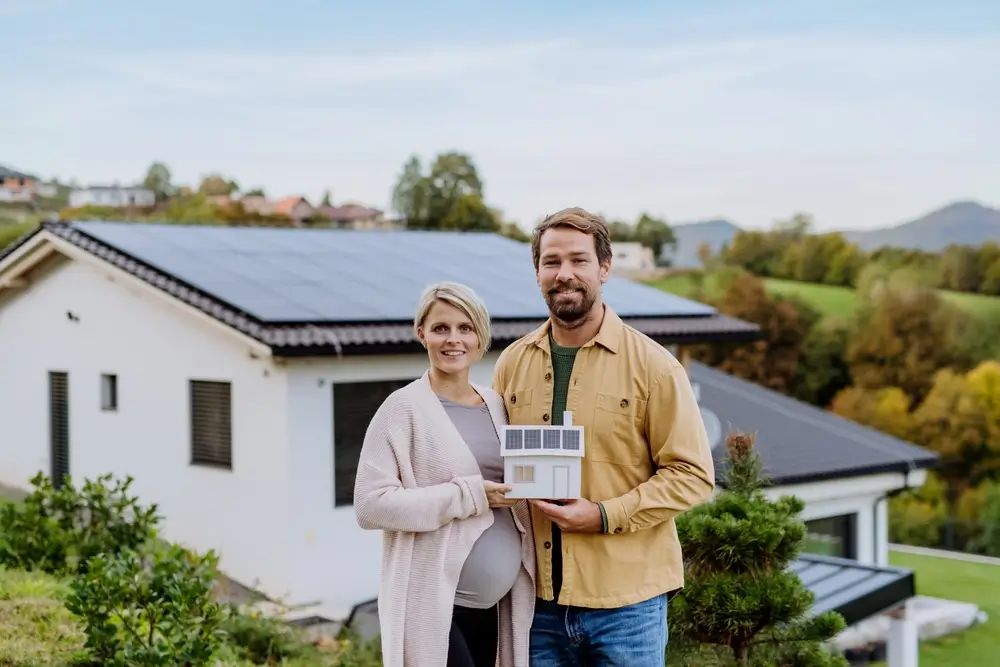
Is It Really Worth Going Solar?
So, are solar panels worth it? For many homeowners, the answer is yes. Solar panels can significantly reduce your electricity bills, increase your home’s value, and contribute to a greener planet. However, the decision depends on your individual circumstances, including your location, energy needs, and financial situation.
Thinking of switching to solar energy? Partner with an expert like Ethical Solar Group.
Ethical Solar Group specializes in residential solar panel installation, offering services in MOST states. They provide comprehensive support throughout the installation process, ensuring you maximize the benefits of going solar. Investing in solar panels for your home with Construct Sun means long-term savings and a sustainable energy future for your home. To learn more, explore how switching to solar can benefit you, or contact Ethical Solar Group for more information.


